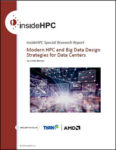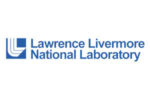This insideHPC Special Research Report, “Modern HPC and Big Data Design Strategies for Data Centers,” provides an overview of what to consider when selecting an infrastructure capable of meeting the new workload processing needs. Tyan has a wide range of bare bones server and storage hardware solutions available for organizations and enterprise customers.
Modern HPC and Big Data Design Strategies for Data Centers
This insideHPC Special Research Report provides an overview of what to consider when selecting an infrastructure capable of meeting the new workload processing needs. Tyan has a wide range of bare bones server and storage hardware solutions available for organizations and enterprise customers.
AMD-Supermicro-Cornelis (Omni-Path) ‘Mammoth’ Cluster at LLNL Targets COVID-19
Lawrence Livermore National Laboratory and partners AMD, Supermicro and Cornelis Networks have installed a high performance computing cluster with memory and data storage capabilities targeting data-intensive COVID-19 research workloads. The Cornelis interconnect used in the “Mammoth” cluster is based on Intel Omni-Path Architecture (OPA) technology, which Intel announced last year it would no longer support […]
GIGABYTE Releases Motherboards for AMD Platform
Taipei, Taiwan, October 29, 2020 – GIGABYTE Technology, (TWSE: 2376), a high-performance servers and workstations company, today announced two new server motherboards extending the diversity of boards for dual 2nd Gen AMD EPYC™ 7002 series processors allowing for demanding multi-threaded applications used in AI, scientific computations, and more. The MZ71-CE0 and MZ71-CE1 are very similar to the MZ72-HB0, […]
HPE Cray EX with AMD CPUs-GPUs to Deliver 552PFLOPS for Finland’s CSC
The HPE-AMD supercomputing tandem has had a bang-out week for systems wins and installations – and it’s only Wednesday. On Monday, Australia’s Pawsey Supercomputing Centre announced HPE has been awarded a $48 AUD million systems contract. Yesterday, Los Alamos National Lab said it has stood up “Chicoma,” based on AMD processors and the HPE Cray […]
Purdue’s ‘Anvil’ to Be Driven by Dell, AMD ‘Milan’ CPUs, Nvidia A100 Tensor Core GPUs
Another in a series of National Science Foundation supercomputing awards has been announced, this one a $10 million funding for a system to be housed at Purdue University to support HPC and AI workloads and scheduled to enter production next year. The system, dubbed Anvil, will be built in partnership with Dell and AMD and […]








